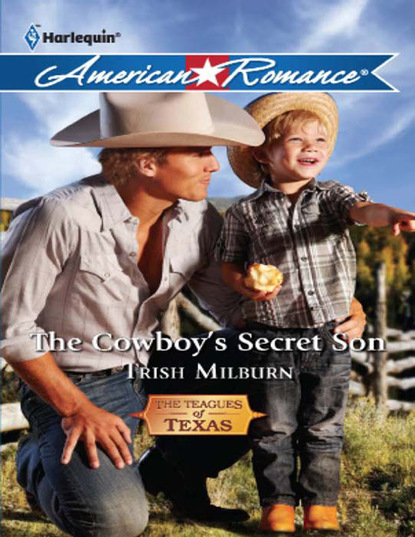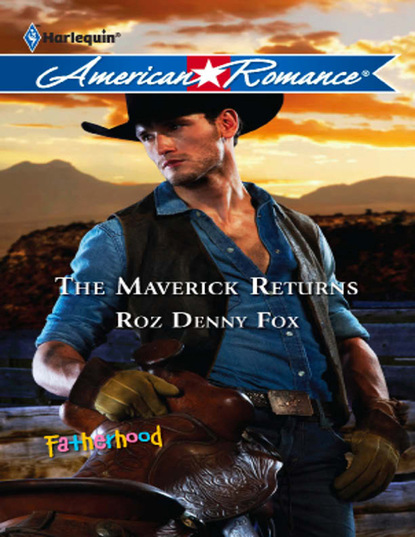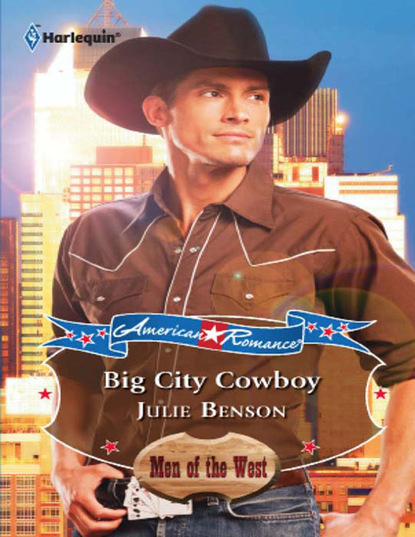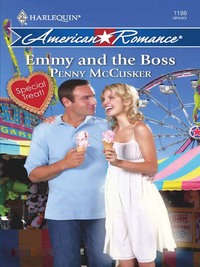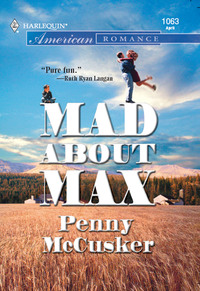
Полная версия
Noah And The Stork
“Mom tells me all the time that she wouldn’t trade me for anything in the world, and I believe her. She never lies—or hardly ever, and then she always has a good reason.” Jessie frowned. “Even if she doesn’t say what it is.”
“I thought I heard voices.”
They both looked over and saw Janey leaning in the doorway. Noah could’ve kissed her, and not simply because the sight of her did things to him he should have outgrown ten years ago—although that would be reason enough.
Her hair was tousled, her eyes sleepy. She crossed her arms under her breasts, which just about killed him. He would’ve preferred something lacy and revealing to the loose midthigh-length T-shirt she was wearing, but apparently his hormones weren’t very discriminating. Janey in a gunny sack probably would’ve gotten him revved up.
A glance at Jessie was all it took to cool him down again.
“What are you doing in here?” Janey asked her daughter.
“Talking to him.” Jessie crossed her arms in a miniature copy of her mother’s stance that gave Noah a pang he didn’t want to examine too closely.
“She’s after an explanation,” he supplied helpfully.
“You won’t be getting one,” Janey said to her. “Why doesn’t matter anymore. Where we go from here does.” She glanced at Noah, then quickly away. “First we all need to get dressed.”
“I’m already dressed,” Jessie pointed out.
“In yesterday’s clothes. Go wash your face, brush your teeth and put on something clean.” Janey shooed Jessie from the room, following her out into the hallway.
Noah called her back.
Janey took a minute to watch Jessie disappear into her room, feet dragging the whole way, before she turned back. She should’ve gone with Jessie—that was all she could think. Noah had swung his legs over the side of the bed, covers be damned, and now that Jessie was gone, it was just too easy to let her mind—and her eyes—stray. And really, it was his fault for sitting there all bare, except for a pair of blue boxers. Silk boxers. His legs were tanned and muscular, peppered with dark hair; so was his chest, but her gaze kept straying back to those boxers. Who’d ever have thought silk could be so clingy? Who’d ever have thought he’d be so—
Dangerous.
She’d walked behind his chair to put his dinner on the table last night and been caught by the scent of him, fresh from the shower. He’d used her shampoo and soap, but on him it had smelled different, the familiar fragrances tangled with some wild and unpredictable aroma that defied description. All she knew was what it did to her. And what it did to her was unacceptable.
She had no business being attracted to Noah Bryant after all these years and all the pain he’d caused her. Not to mention Jessie.
“You need to get dressed, too. If know my daughter, she’ll be ready in record time and I don’t think you want her to see you like that.”
“Our daughter.”
She held his eyes, despite the fact that her heart lurched over hearing him say that. “You’re right, biologically speaking. I wonder if you can make it true in any of the ways that really count?”
“But you’re afraid I can, and that you’ll lose part of her to me.”
“I’m surprised you care what I’m feeling, Noah.”
“But you’re not denying it.”
Because she was very much afraid he was right. It wasn’t that she didn’t want Jessie to have a father, but it had been just the two of them for so long. The idea of having to send her daughter off to live with Noah on summer vacations made Janey want to throw up. And what holidays could she stand to miss with Jessie? Even Arbor Day seemed to hold a special meaning suddenly, and as for Christmas or Thanksgiving, what would be the point if she was alone?
“Jessie is all that matters,” he said.
She hated him in that moment, hated him for coming back and turning her world upside down again, for leaving her ten years ago, for moving to town in the first place. Especially, she hated him for showing her what should’ve been her first concern. But the guilt was stronger. “She deserves to make up her own mind about you. And, believe me, she has a mind of her own.”
Noah gave her a crooked smile. “Now why is that so easy to believe?”
“Because it’s the truth.”
He dropped his gaze, exhaled heavily. “You weren’t kidding, were you? You didn’t tell her anything about me—”
“There was nothing to tell.”
“—and you didn’t tell me anything about her,” he finished. “You’re going to make us get to know each other without bogging us down with your opinions.” He looked up at her, and what she saw in his eyes was more eloquent than whatever he might have said.
“Get dressed,” she said gruffly, refusing to let his respect and admiration mean anything to her. “You’ve got fifteen minutes.”
That made him smile, full and wide and just as irreverently as when he’d been a kid and the black sheep of the entire town. “And if it takes me sixteen?”
She returned his smile, but there was no amusement in her eyes. “I’ve still got your keys.”
“COME ON, Bryant,” Janey yelled up the stairs. “Get it in gear.”
From her seat at the kitchen table, Jessie heard Noah shout down, “I thought you were kidding about the fifteen minutes.”
“I have to be out of here, like, now.”
Noah’s okay floated down the stairs, and her mom came back into the kitchen. She stopped in front of the sink and stood there a minute, staring off at nothing with a goofy expression on her face.
Jessie rolled her eyes, thinking, jeez, adults are weird. “Uh, Mom, do you want me to finish making my lunch?”
“No,” Janey said, stepping to the counter by the fridge. “Turkey or peanut butter?”
“Peanut butter,” Jessie said, although she couldn’t care less.
She didn’t like the way Noah Bryant looked at her mom, and she didn’t like the way her mom looked at him. And she didn’t want a father anymore.
Okay, maybe when she was a kid she’d wished for a father, even if he didn’t live with them. Some of the kids in school had parents who were divorced and they got to see their fathers, and that was all she’d wanted. But fathers weren’t always nice. The kids at school were always complaining about how their dads yelled at them and Davy Martin’s dad had even spanked him!
It wasn’t as if she thought Noah would do something like that, though; he didn’t seem to be that kind of guy. But she didn’t see any reason for him to stick around, either. Her life was fine the way it was. There was Clary—Deputy Sheriff Beeber—who took her fishing any time she wanted. Sure, it was partly because he liked her mom, the boy-girl icky sort of like, but they were friends, too, she and Clary. And there were the Devlins, who treated her as part of their family, even though they weren’t really related. That wasn’t so many people when you counted them up, but there was the whole town, too, Mrs. Halliwell, and the Shastas and just…everybody.
So what did she need a father for? Especially one who couldn’t even be bothered to explain why he hadn’t been around for her entire life. Well, she didn’t want explanations anymore. She just wanted him to go away and stay away.
“So where is he?”
Her mom glanced back at her. “He’ll be down in a few minutes.”
“He’s going to make us late.”
“No, I’m not.”
They both turned around. Janey stared at him as if she’d never seen a man wearing a dumb old black suit before. And he stared back.
Jessie flounced around in her chair and put on what her mom called her thundercloud face—which seemed to get the point across because her mom turned around again, loaded up the lunch box and snapped it shut, holding it out.
“C’mon, Jessie,” she said. “Bring your bowl to the sink and let’s get going.”
“It’s only six-thirty,” Noah said.
“I teach government and history at Plains City High School in the mornings—” Janey washed the two cereal bowls and put them on the draining board “—which, if you’ll recall, is fifty miles away.”
He didn’t take the hint. “What do you do in the afternoons?” he asked, leaning against the wall.
“I counsel at the high school two afternoons a week and teach art at Erskine Elementary the other three. And if that isn’t enough for you, I’m also Mayor of Erskine.”
“Sounds hectic.”
“That’s exactly why I’m trying to get rid of you. School starts at 7:30, which barely gives me time to drop Jessie off and get to Plains City before class.”
“I guess I’m on my own for breakfast.”
Her mom gave him a look that said he’d always been on his own for breakfast. And then she turned to Jessie and said, “Go get your stuff together, kiddo.”
“You just want to get rid of me so you can talk about me.”
Janey half turned, placing a hand on her hip, mother-daughter shorthand for “Don’t make me say it again.”
“Okay, okay.” Her mom followed her out to the front entryway, watching her go upstairs. Jessie stopped on the landing, just out of sight, but not out of earshot.
“Are you going to be around later?” she heard her mom say.
“There are…matters I need to take care of.”
“Matters?”
“I’m here on business, remember?”
See, Jessie reminded herself, he wasn’t even here for her. She was glad she’d already decided she didn’t want anything to do with him. She sneaked up the rest of the stairs, so they wouldn’t know she’d been listening, grabbed her stuff and ran down with her backpack in one hand and her duffel in the other.
“You must have the entire library in those bags,” Noah teased. “What are they teaching you kids these days?”
“I’m staying at the Devlin ranch. I’m helping with the spring roundup. We’re camping out Saturday night.” Jessie puffed up for a minute, before she remembered who she was talking to and that the last thing she wanted to do was impress him. “I’ll be home Sunday morning. You’ll be gone by then,” she said, wincing when she caught the way her mom looked at her. So what, Jessie thought. Noah Bryant had been rude for ten years. He deserved to get some of it back. “I heard you tell Mom you were leaving town. Again.”
Noah’s smile faded. “I have some business to take care of, Jessie. I’ll call you when I’m back in the area, and maybe we can…I don’t know, talk or something.”
Jessie stared at him the way she’d seen her mom do when she figured what she was hearing was B.S., then she dragged her stuff out to the car and waited to go to school. Just like it was a normal day.
She’d had lots of practice pretending her life was normal.
Chapter Four
“Really, Mr. Gardner, it’s the best deal you’re going to get—unless there’s been a sharp increase in real estate here that I’m not aware of.”
Gardner scratched his head, staring intently at the purchase agreement Noah had set in front of him. “I don’t know, Mr. Bryant. It’s a big decision, selling my place.”
My place. Just like his old man, Noah thought. Hell Farm had been all about him. His dream. His life. He made all the decisions and dragged everyone else down with him.
Noah took a sip of coffee so weak it was probably the fourth pot brewed from the same grounds. Mrs. Gardner and her children were watching him as if he was the answer to their prayers. He knew he’d regret it, but he pulled the purchase agreement back, crossed out the amount and wrote another above it. Then he spun it around and slid it across the table.
Gardner took in the revised sum, his expression a mixture of greed and revulsion. “It’s not about the money.”
Not about the money? There was a reason cows outnumbered people in Montana, Noah figured. Most people were too smart to live in a state where day-to-day life was such a struggle.
No, that wasn’t entirely fair. Some people were cut out for this kind of life. He wasn’t.
And judging by the worn furnishings, the nearly empty pantry shelves, the hopelessness on the faces of Mrs. Gardner and her children, neither was John Gardner: He was just too stubborn admit when he was licked—or desperate enough to take the risk of blowing the deal on the chance he could squeeze a few more dollars out of the sale. Noah recognized in the man’s face what he’d trained himself not to see in his own mirror.
Work hadn’t been going all that well lately. He’d lost some of the momentum that had carried him to the upper ranks of the business world so fast, and the sharks were beginning to circle. He needed a big killing to get back on top of his game, and this was it. He couldn’t afford to blow it. He might even have said he was desperate not to blow it, but the difference between him and Gardner was that he wouldn’t let desperation drive him. “If that isn’t enough—”
“I thought you had to have this property,” Gardner said, looking up at him with suddenly shrewd eyes.
“I’d prefer this property.”
Gardner took a moment to consider the difference.
It was a moment too long. Noah rose. “Thanks for meeting with me,” he said, reaching for the purchase agreement.
Mr. Gardner snatched it from him. “I ain’t said no yet.”
“You haven’t said yes, either.”
“It’s not as easy as yes or no, son. Like this bit about keeping it a secret. Why is that, exactly?”
Noah had already explained it as best he could without revealing too much, but he swallowed his impatience. “Like I said before, Mr. Gardner. There’s nothing illegal or unethical about this deal. We’re not building something that’s harmful to the environment.”
“If there isn’t anything cagey about this deal, why the need to keep it from other folks?”
“We prefer to make the announcement when and how it best suits our purposes.” And because there was sure to be some opposition, and he didn’t want it to become public knowledge until he had the foundation of the project already laid. “If it gets out before we release it, the deal will be off.”
“At least that’ll make the decision easier.”
Noah sighed and sat down again. “Are you worried that people won’t understand why you decided to sell?”
“It’s not other folks I’m worried about, it’s myself,” Gardner said. “About all I got left’s my pride.”
And that was more important than his family’s welfare? “I’d like to be able to set your mind at ease,” Noah said, putting aside his anger and disgust, “but you’re the only one who can do that.”
“We’ve worked long and hard to get this far and it don’t sit right just giving up.”
Noah shrugged. “It makes no difference to me. If you don’t sell, someone else will.”
The man still hesitated.
“Mr. Gardner, I know how you feel.”
“You got no idea—”
“Yes, I do.” Noah tried to tell himself this was about business and nothing else, but it was too late for that. “I grew up on a farm like this,” he said. “My father didn’t have the money to buy cattle, so we worked, harder and harder every year, trying to get a decent cash crop in a state where winter lasts eight months of the year and spring and fall make up the other four.” And the worse things got, the more often he’d felt the back of his old man’s hand. Then after his mother died…
He’d gone a long way to forget those years. There was no point in remembering them now. “I know you want better for your family, Mr. Gardner. That’s not going to happen as long as you stay here, and we both know it.”
There was a moment of stunned silence, both of them taken aback by how much it mattered to Noah, and not just because he wanted the property.
“I know I’m being stubborn, son, but—”
“Do you think another chance like this is going to come along? Ever?”
Gardner took a deep breath, let it out. “When you put it that way…”
The farmer held out his hand. Noah shook it, but the relief he felt had nothing to do with getting the job done. “You should have a lawyer check that purchase agreement over before you sign it,” he said.
“Hell, Bryant, you seem trustworthy.”
Noah countersigned the paperwork, thinking a lot of people made the mistake of thinking he wasn’t trustworthy, but one of the first lessons he’d learned was to look out for number one. The second lesson was that by the time somebody had stabbed him in the back, it was too late to do anything about it. Little by little he’d adopted an offensive strategy toward life—he never purposely hurt anyone, but if someone got in his way, he didn’t waste his energy on regrets.
The Gardners, however, had nothing to worry about; the purchase agreement was aboveboard and soon they’d be on their way to a new life. It wouldn’t take much to be an improvement over this one, Noah thought, as he stepped outside.
The main house was mostly gray, with white paint still clinging to the weathered wood in enough places to give it a strange mottled appearance. The barn listed badly to one side and the other outbuildings weren’t much better, including one Noah would’ve sworn was an outhouse. The Gardners followed him, Mr. and Mrs. Gardner looking eerily like the couple in the painting American Gothic with Mr. Gardner clutching the purchase agreement instead of a pitchfork.
Noah climbed into his car and started it, savoring the smell of leather and his own aftershave, the coolness of the air-conditioning on his face and the comfort of the seat, with its built-in heat and lumbar support, beneath him. He felt more at ease—not because of the luxury that surrounded him, but because the world could do with one less place like this. Even if some of the people hereabouts lamented its loss, at least the Gardner children would benefit.
He bumped and jounced down the potholed driveway, along the slightly smoother two-mile stretch of dirt road that led to the main gravel road, and finally to the two-lane highway, a straight and unforgiving line of blacktop that stretched to the mountains behind him and the horizon in front. He heard the throaty purr of the Porsche’s engine, felt the rumble of it through his seat and saw the landscape passing by the car windows, yet he felt like he was going nowhere.
Two weeks ago he’d known exactly who he was and where he was going, and his world had been what he made it. He’d been a man without a past, at least as far as anyone he knew in Los Angeles was concerned. His friends had learned not to ask him about his childhood; he only made jokes, or if they pushed him, gave answers that were vague at best. And the women he dated weren’t really interested in the past—or the future, for that matter. He made very sure of that.
Now, here he was, stepping right back into the life he’d managed to escape. And he’d done it willingly, not to mention arrogantly, certain he could walk in his own footsteps without any consequences. Hah. How deluded had he been to think that? And he wasn’t talking about the stroll he’d just taken through the worst moments of his childhood.
He was talking about the best moments. All of which revolved around Janey.
She’d saved him from everything, the travesty of his family, from closed minds and unsympathetic authority figures, from his own self-destructive tendencies. At a point in his life when he was the town outsider, when almost no one in Erskine accepted him, Janey had. It was that simple.
And when she’d needed him, where had he been? Where was he now? Still focused on his career, his future, his own wants.
Sure, he’d called her house twice in the two weeks since he’d discovered he had a daughter. Both times she and Jessie had been gone and he’d left messages, grateful they weren’t there to ask questions while resenting the fact that he felt obliged to check in with her at all.
He gunned the engine, watched the speedometer notch up to seventy, a foolish speed to be traveling on a backcountry road where a cow or a slow-moving tractor could be over the next hill. He didn’t slow down, even when he passed the turnoff for Erskine. He wasn’t ready to go back there yet. Besides, Jessie didn’t want him around, anyway; she’d made that perfectly clear.
SPRING IN ERSKINE. There was no better season, Janey decided, and no better place to spend it than her hometown.
Erskine didn’t change from year to year, the same old buildings, the same mountains and pastures and hay meadows, but in the spring it always seemed…newer, fresher. People opened windows to let in the breeze off the mountains, a breeze so crisp and clean it slipped into corners and swept through shadows, and left them brighter somehow. The winter’s accumulation of dirt and dead leaves had been banished from the doorways, window boxes had been filled with geraniums and impatiens, and planters hung from eaves, dripping with ivy and crowded with glossy-leaved begonias.
It was such a beautiful day that she’d left her car at home and walked to the school for her afternoon art classes. She really should have taken Jessie directly home after school; she had a hundred tasks to complete, grades to tally for final report cards, trim to paint. Phone messages to listen to…
She looked down at her daughter and decided there wasn’t any rush to get home. Two weeks had passed since Noah had left with a promise that he’d be back. Two weeks and two phone messages, they still hadn’t seen him. As the days continued to add up, facing the answering machine each evening had become a real challenge. If the message light was blinking, it meant Noah couldn’t make it again. If there was no message, it was even worse.
No one else in town knew about Noah’s visit, a kind of unspoken agreement between mother and daughter not to bring up a subject sure to inspire gossip they didn’t want to hear and questions they couldn’t answer. But Jessie wouldn’t talk to her about Noah, either, and that worried Janey.
“Clary’s truck is at the sheriff’s office,” Jessie said. “Can I go say hi?”
“Absolutely. Tell him hi for me, too.”
“You could tell him yourself.”
Janey considered doing just that, for all of ten seconds. The hope on Jessie’s face held her back.
Deputy Sheriff Clarence Beeber was not only Jessie’s fishing buddy and good friend, he was the closest thing she had to a father. But it wasn’t any secret that he wanted to be her father for real one day. It was Janey who was taking her sweet time. And she let them think that, because, honestly, she didn’t know what else to do.
She didn’t want to string Clary along, but she’d always been afraid of what it might mean for Jessie if she told him outright that they’d never be more than friends. So Janey walked a fine line between not encouraging Clary, but not discouraging him so much it became uncomfortable for him to see Jessie. Walking that line was even more important now, when the last thing her daughter needed was more change in her life.
“I have about a million things to do, Jessie, but you go on ahead. Just be home for supper.”
Jessie headed off, dragging her feet, nothing like her usual upbeat self. Janey knew Clary would cheer her up, though, and in the meantime, she’d go home and weed or wash windows. Whatever kept her hands occupied and her mind off Noah Bryant.
“Hey there, Janey,” Earl Tilford called out as she turned the corner onto Main Street and passed the bakery.
Janey backpedaled a couple of steps and stuck her head in the wide-open doorway. “How’s it going, Mr. Tilford?”
“I was about to ask you that. I heard Bryant’s in town.”
“Where did you hear that?”
“Came by way of the usual sources.”
Which meant Dory Shasta, wife of Mike Shasta, owner of the Ersk Inn. If the Ersk Inn was the town watering hole, Dory Shasta was a prospector who spent all her spare time panning for little nuggets of information that she used to her best advantage. In Erskine, gossip was currency.
There was no telling how Dory had found out. Mrs. Halliwell might have seen Noah outside her house two weeks ago, or maybe somebody had recognized him when he gassed up on his way out of town. Or he was here now, which not only gave Janey a serious case of butterflies, it made more sense. No way would it have taken two weeks for such a juicy rumor to get around.
This kind of information ran through town like a bad case of the flu. That thought made Janey smile, since in both instances stuff was coming out of people’s mouths that would’ve been better off kept inside. Not that she resented the gossip all that much, even when she was at the center of it. Some people might not appreciate having everyone know their business, but to Janey it felt like being part of a huge, caring family. Being alone in the world and responsible for a daughter was a little less scary in Erskine.


